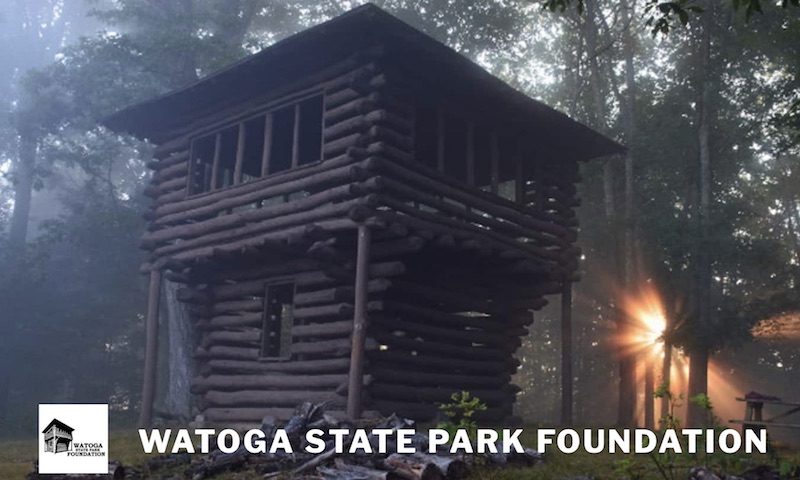
Watoga State Park Foundation Statement Opposing Logging In Watoga

The Watoga State Park Foundation is opposed to logging in Watoga State Park and believes that logging the park will only serve to degrade the recreational opportunities for mountain biking, hiking, and paddling and diminish the ability to preserve our existing wildlife and plant species.
Watoga State Park, in Seebert, Pocahontas County, West Virginia, is a popular park for residents as well as non-residents of West Virginia due to its charm, location, and natural beauty. It has almost 50 miles of hiking trails and plans are underway for a mountain bike trail. Watoga has a dense population of black bears, as well as arboreal mammals and many bird species. Perched on the banks of the Greenbrier River, it attracts visitors who want to paddle, fish, swim, birdwatch, hike, see exquisite wildflowers, mushrooms, and other flora and fauna. Watoga has two campgrounds, which are in high demand, as well as multiple CCC log cabins and more recently constructed cabins.
The proposed mountain bike trail will attract more people to explore this unique (and it is unique in every sense of the word) backcountry that also has great historical significance i.e. the Workman Cabin and cemetery plus several other early settlements.
Jesse’s Cove is an unparalleled opportunity to see a plethora of wildflowers, including species of trillium, columbine, Dutchman’s breeches and more. The park also hosts a very rare and endangered species of orchid, the Small Whorled Pogonia (see link below).
A connection between South Burnside and Kennison Run trails has been established creating even greater opportunity for hiking, backpacking and cross country skiing in a wilderness setting that is exceedingly rare in a state park.
Watoga State Park is loved for a great number of reasons, not the least of which is the ability to find quietness, something that is a diminishing and necessary resource in today’s world. Watoga is even being considered as a designated Dark Sky location because, I repeat the word “because,” it has that unique untouched quality to it. Just ask any visitor here!
Pocahontas County is applying for a Ride Center Designation which can do much to bring more visitors to Pocahontas County.
SB 270 proposes logging 4 trees per acre, but this figure is an average of 4 trees per acre per tract. In reality, the trees could come primarily from one area. Logging contractors would, most likely, push for more trees from fewer areas, to minimize costs.
SB 270 specifies a 16” circumference. A sixteen inch circumference is actually a 5 inch diameter. This means that many more trees would be permitted to be harvested than would a 16” diameter.
The state routinely logs from state forests and has protocols in place for timbering in state forests. These protocols are based on forest management plans. There are no such requirements in this bill for Watoga. Timbering is not necessary at Watoga for wildlife management purposes or for wildfire prevention.
The bill fails to consider the following important goals: protecting viewsheds, minimizing road construction, requiring reclamation of roads, following best management practices to minimize impact to streams, cutting to promote regeneration of desired species of trees, cutting to provide wildlife habitat, and having public input on the plan or future cuts. The bill has no sunset component.
Our state parks, including Watoga, are costly. But they should not be required to be totally self-sufficient financially. Timbering Watoga would set a precedent for chipping away the very essence of Watoga. Watoga and other state parks offer West Virginians opportunities that they cannot get elsewhere—to see and experience natural beauty, to learn about nature, and to enjoy the great outdoors.
Respectfully,
John Goodwin, President
Watoga State Park Foundation, Inc.




